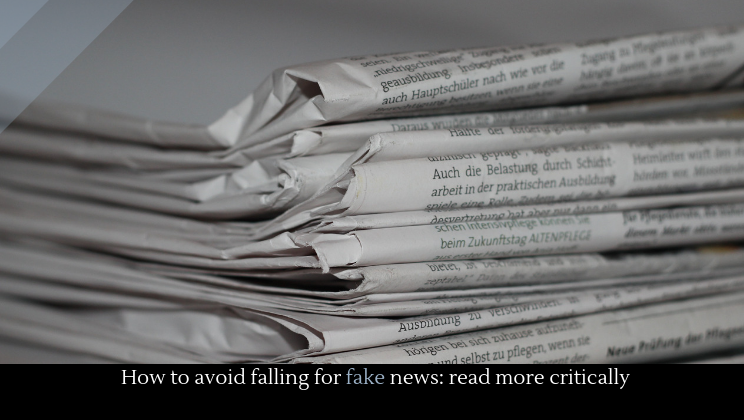How to avoid falling for fake news: read more critically
Posted by Josh Taylor / November 12, 2018
Take a listen to this song:
Here on these cliffs of Dover
So high you can’t see over
And while your head is spinning
Hold tight, it’s just beginningYou come from parents wanton
A childhood rough and rotten
I come from wealth and beauty
Untouched by work or dutyAnd oh, my love, my love
And oh, my love, my love
We both go down togetherI found you, a tattooed tramp
A dirty daughter from the labor camps
I laid you down on the grass of a clearing
You wept but your soul was willingAnd oh, my love, my love
And oh, my love, my love
We both go down together
And my parents will never consent to this love
But I hold your handMeet me on my vast veranda
My sweet, untouched Miranda
And while the seagulls are crying
We fall but our souls are flying
What is this song about? What do we know about the characters? What are their motivations?
Take a second and really try to answer those questions before reading on.
The title of the song is “We Both Go Down Together.” The question is, are the characters’ feelings mutual? Maybe you’re starting to guess where this is headed: What evidence is there that the woman is in love with the narrator? What’s really going on in this song? A rich, spoiled boy saw a poor girl and decided he loved her. He “laid [her] down” while she “wept,” but her “soul was willing.” How did he know her soul was willing? How can we trust him? The answer is that we can’t.
The reality is there are two possible interpretations of this song. The first is straight forward. The narrator and the woman are really in love, and they’re forced to commit suicide or be separated. The second requires a bit more thinking. The woman has no choice but to have sex with the rich, powerful young man. He forces her to commit suicide with him rather than live under the thumb of his parents, so he asks her to come over and enjoy the view from his veranda. When she gets there, he pulls her off.
It takes work to come up with that interpretation, however, and sadly most people are not interested in that kind of mental labor. According to a recent study, laziness is the root of the “fake news” crisis, not political bias. Media consumers don’t want to do the work to think for themselves, they want the interpretations handed to them. As the example above shows, the truth is out there, it just takes work.
More news.
Comments are off for this post.